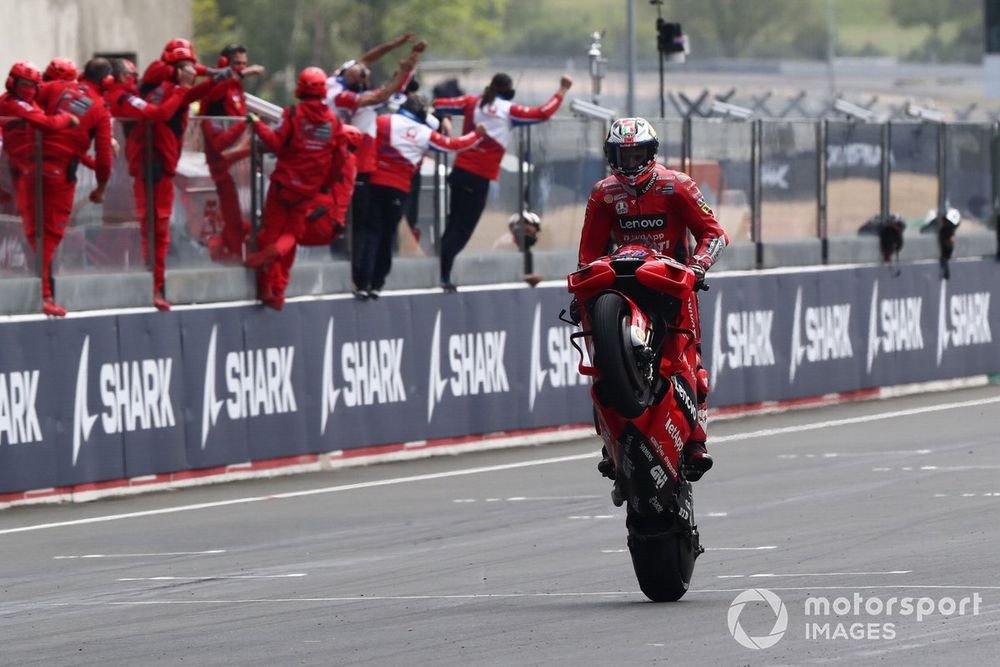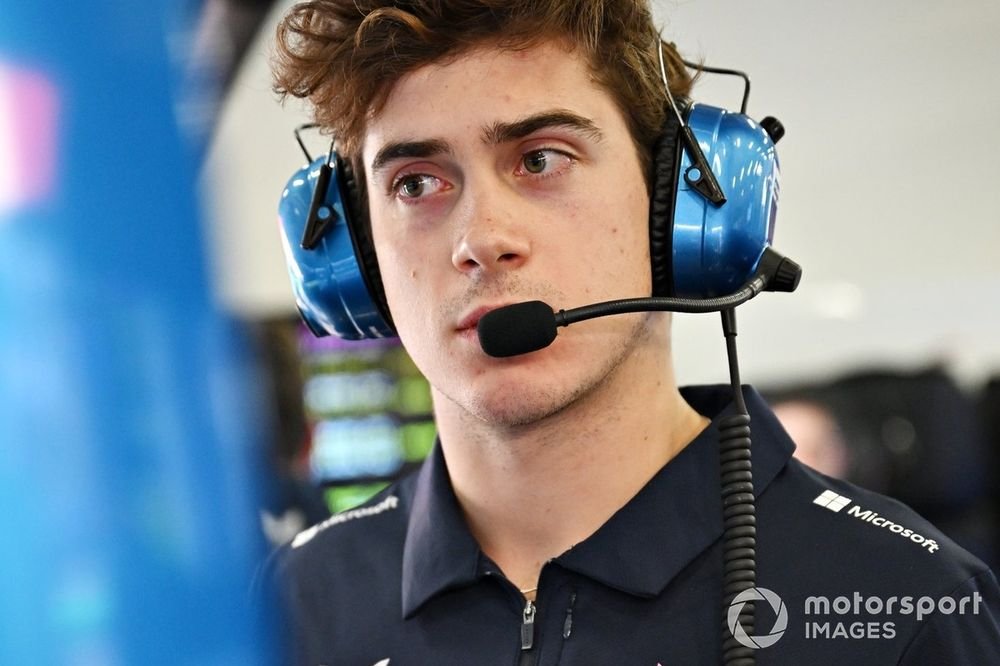23XI Racing and Front Row Motorsports faced off with NASCAR on Friday in the latest war of words as this tense legal battle continues. It was Judge Paul Victor Niemeyer, Judge Steven Agee, and Judge Stephanie Thacker listening to oral arguments in the United States Court of Appeals located in Richmond, Virginia.
This appeal centers around NASCAR trying to overturn the preliminary injunction, which was granted to 23XI and FRM in December, 2024, allowing them to race as chartered teams without being held to the release (ability to sue NASCAR) in the 2025 Charter Agreement. They have called out the agreement for including these conditions, claiming they qualify as antitrust violations when grouped in with other factors.
It was NASCAR’s lead attorney, Christopher Yates, and lead attorney for the teams, Jeffrey Kessler, taking turns arguing their case.
NASCAR takes the floor
Yates was up first, explaining that there is nothing stopping the teams from competing even if the injunction was reversed, which would strip 23XI and FRM of their court-won charters mid-season.
“They were offered a contract, they rejected the contract,” declared Yates. He continued, saying that there is “no contractual relationship between the parties. Yet, the district court’s injunction orders a contract, therefore upending the status quo.”
He also hit back at the assertion that NASCAR operates as an unlawful monopoly, citing how charter negotiations went on for well over two years. “Monopolists don’t negotiate for two and a half years,” he said. He pointed out that teams never raised an issue regarding the release (the ability to sue) until after rejecting the offer. And it was this release that the district court cited as a reason to grant the injunction, considering it to be exclusionary conduct. He went as far to claim that the district courts misunderstood the situation and failed to follow precedent when granting it.
The judges — primarily Judge Niemeyer — asked several clarifying questions of NASCAR during this time. Yates’ strongest point was as follows: You can’t ask to be bound to something you’re simultaneously contending violates the antitrust laws.” He also asserted that the only motivation here was that the teams wanted to get more money out of the sanctioning body.

NASCAR Commissioner Steve Phelps
Photo by: Chris Graythen – Getty Images
Team attorney spars with judges
Kessler didn’t get far into his opening comments before Judge Niemeyer interjected, saying he failed to understand the point he was trying to make. “If you don’t want the contract, you don’t enter into it and you sue. Or if you want the contract, you enter into it, and you give up past releases. Our Omega (citing Costco v. Omega) observation is that you can’t have your cake and eat it too.”
Kessler immediately pushed back and things got a little contentious, but remained professional. While trying to make a point about irreparable harm, Judge Niemeyer interrupted again. “Stay away from the harm. Stay away from all that. Go to the antitrust theory. That’s my biggest problem. It’s the likelihood of success.”
The judge also pointed out that the release that 23XI/FRM are taking issue in is mutual so teams can’t sue NASCAR, but NASCAR can’t sue the teams either. “Is the inclusion of mutual releases in a contract anti-competitive in the sense of a monopolist can’t include it in their contracts?”
Kessler replied: “If the release was used to help maintain the monopoly position–“
Judge Niemeyer instantly pushed back. “Then you don’t enter into it. But you don’t sit there and say ‘I want in’ under that contract but ‘I want it modified to allow me to bring my antitrust claim’ … it’s a very difficult antitrust theory you have.”
That point was repeated often, but the reason the teams are even in this position is because they are desperately trying to hold on to their charters while taking this issue to trial. It’s a difficult balancing act.

Chase Elliott, Hendrick Motorsports Chevrolet, Austin Dillon, Richard Childress Racing Chevrolet, Bubba Wallace, 23XI Racing Toyota, Noah Gragson, Front Row Motorsports Ford
Photo by: Sean Gardner / Getty Images
A fight without precedent
The court argued that this Charter Agreement appears to be more “anti-lawsuit, not anti-competitive.” They again said that if you want to preserve your lawsuit, then simply do not enter the contract.
Another discussion centered around the unprecedented nature of all this, which was pointed out by Judge Thacker. In 135 years since the Sherman Antitrust Act was introduced, there hasn’t really been any case like this. Kessler conceded that it has never been approached in this way, but he did bring up a case involving Mitsubishi where a release was utilized to protect antitrust behavior.
But the judges continued their questioning, trying to connect the release to anti-competitive behavior. At one point, the court asks: “What relief do you want for your racing team? You want to be racing in that series, right?”
Kessler replies, “We could have done that, your honor, under their terms already. That was not the object of this release.”
Judge Niemeyer then quips, “You want to be a policeman, is that it?”

Front Row Motorsports hauler
Photo by: Chris Graythen – Getty Images
Kessler tried using an analogy of a monopolistic apple farmer who could harm apple consumers in the same way, aiming to simplify the argument. “The injury is that you’re getting too little,” said Kessler. “The relief that we want is to get damages for–“
But he was interrupted by the bench again. “They don’t sign the contract and sue, and get your relief. But the claim that you’re entitled to the contract without the release is really an Omega problem (you want to have your cake and eat it too).”
Kessler tried to make a case for irreparable harm, stating that “it is not economically viable to have to qualify each week.” According to Kessler, to run as open teams would be a massive financial hit, and could put their sponsor relationships and driver contracts in jeopardy. It could ultimately hurt their on-track performance as well while also losing out on the positive aspects of the Charter Agreement while their championship rivals still benefit from it.
What happens to SHR charters if injunction is reversed?
Judge Agee tried to get things back on course, focusing on the issue at hand as the debate started drifting into the foundation of the lawsuit itself. “I can see that at trial and it will be a very interesting trial, yet to happen,” said Agee. “But the only thing we’re here on today is the preliminary injunction.”
Judge Niemeyer noted that the injunction is very narrow, only relying on the issue of the release and that the injunction has some “unappetizing things about it.”
Kessler brought up the Omega case again, claiming it doesn’t apply because the teams aren’t trying to invalidate the entire Charter Agreement. But perhaps his most interesting point was the ripple effect that would occur if they suddenly lost their charters.

Cole Custer, Haas Factory Team
Photo by: Jared C. Tilton/Getty Images
Kessler claimed overturning this mid-season won’t just harm them, but third parties like Stewart-Haas Racing. SHR sold a charter to 23XI and another charter to FRM before shutting down. All that remains is a one-car effort by Gene Haas under the Haas Factory Team. Kessler pointed this out, saying that you cannot simply give SHR the charters back as the organization doesn’t exist anymore.
“[SHR] no longer has any operation to run a team. So, if we gave him the teams back, he has no drivers, he has no pit crew, he has nothing in the middle of the NASCAR season. It would cause havoc to overturn this injunction in the middle of the season,” said Kessler. “If it just stays in effect until November, (then) we’re done and then we have a trial and either we win or lose.”
NASCAR rebuttal
Yates’ rebuttal denied that there are any anti-trust violations present, which was no surprise. He reiterated some earlier points about the fact that NASCAR isn’t preventing them from taking part in the racing series. However, he then focused on his own take regarding irreparable harm.
“NASCAR and the teams are being hurt every day this injunction stays in place,” explained Yates. “NASCAR is being hurt because it’s forced into a contractual relationship with a counter-party that it doesn’t want to be in a long-term contractual relationship with. Other teams are being hurt, (because without) the injunction, other teams would have gotten more money. Other chartered teams would have gotten more money, they would have gotten a bigger part of the charter pie.”
Judge Agee asked a competition-focused question about open spots and how many are available each week. Most weeks beyond the Daytona 500 rarely see a full field and Yates argued that teams at the level of 23XI and FRM would have no problem qualifying in on pace alone.

Nascar Cup Series signage
Photo by: Chris Graythen – Getty Images
“Two-thirds of the season is left,” said Yates. “We urge this court to act quickly because NASCAR and other teams are being hurt.” He then repeated the ‘have your cake and eat it too’ phrase that came up several times throughout the hearing.
He also agreed with the judges, as did Kessler earlier, in regards to need for mediation. But Yates didn’t seem hopeful, claiming that this is all about the terms of the 2025 Charter Agreement and that NASCAR in unwilling to change it. “We’re not gonna rewrite the charter contract,” said Yates.
A decision has yet to be made regarding the legitimacy of the injunction, but the clock is ticking as the NASCAR season rolls on in the background. You can listen to the entire hearing HERE.
In this article
Be the first to know and subscribe for real-time news email updates on these topics
Subscribe to news alerts














Leave a Reply